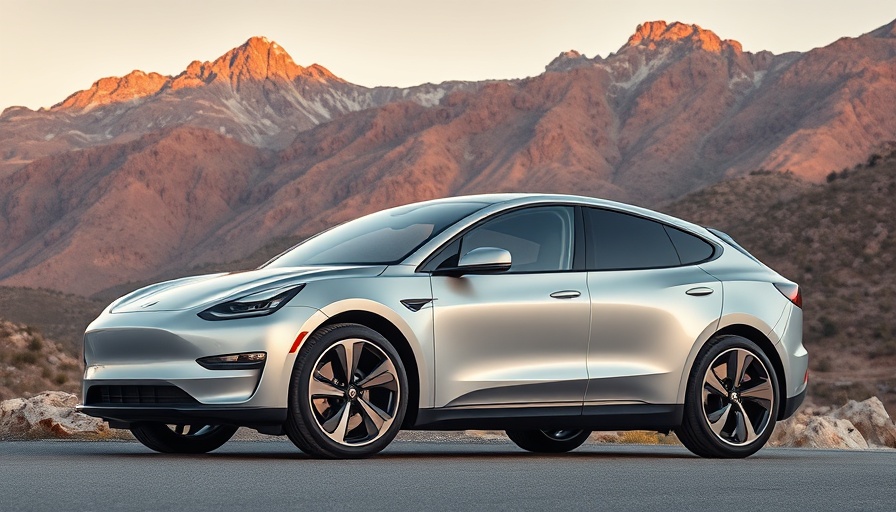
The Model Y: A Benchmark in the EV Market
The Tesla Model Y has established itself as a dominant player in the electric vehicle (EV) market, showcasing an impressive balance of performance, practicality, and efficiency. Despite experiencing a 24.2% year-on-year decline in sales this year, with 150,171 units sold, it remains significantly ahead of its rivals. Priced competitively starting at $47,990, many consumers still find it appealing given its combination of spaciousness, advanced features, and the brand’s strong reputation.
What Makes the Model Y Stand Out?
Several factors contribute to the Model Y's ongoing success. With its all-electric driving range of 280 miles, it ranks favorably in fuel efficiency, achieving 120 MPGe combined. The performance metrics are equally impressive, featuring 425 horsepower and 475 lb.-ft. of torque, characteristics that appeal to consumers looking for sustainability combined with exhilarating performance. This is a crucial aspect as buyers become increasingly discerning about the capabilities of their vehicles.
Future Rivals: The Challenges Ahead
With the EV market projected to continue its rapid growth, numerous manufacturers are entering the fray with new models expected by 2025. Brands like Ford, Volkswagen, and Hyundai are working on vehicles designed to challenge the Model Y's supremacy. These competitors are focused not only on performance and range but also on incorporating advanced technology features and better safety ratings—critical areas that consumers prioritize.
Market Trends: Changing Consumer Preferences
As evidenced by current trends, much of the car-buying market is shifting towards hybrids and fully electric vehicles. By 2024, predictions indicate that consumers will demand more eco-friendly vehicles with expansive connectivity and safety features, which could reshape purchase decisions. Moreover, real-world mpg reviews will be essential for buyers assessing long-term cost and efficiency in EVs.
Insights on Vehicle Technology Features
When exploring what the future holds for EV technology, infotainment systems play a pivotal role. The Tesla Model Y already offers exceptional user interfaces compared to its competitors. A focus on seamless integrations with smartphone apps, voice commands, and advanced navigation systems will become increasingly essential for maintaining customer loyalty.
Statistical Insights: Performance Comparisons
Data from 2024 shows that consumers are putting greater emphasis on performance, reliability, and ownership costs. The Model Y, along with anticipated challengers, will likely need to address these factors not only to attract new buyers but also to retain current customers disillusioned with previous vehicles. Even the top-rated safety features, such as automatic emergency braking and lane-keeping assist, will weigh heavily in consumer choices.
Conclusion: The Year of Competition
The road ahead for luxury electric SUVs is competitive, with heightened rivalries expected between the Tesla Model Y and upcoming models from established automakers. While Tesla has established a solid foundation, emerging players are uniquely positioned to introduce innovations that could disrupt its market dominance. Whether these new entrants will indeed rival the Model Y remains to be seen, but one thing is clear: the evolution of electric vehicles is just beginning.
As you ponder your next vehicle purchase, consider leveraging trusted resources like car comparison tools and car performance analyses. These tools will empower you to make a well-informed decision suited to your lifestyle and needs as we head into an exciting new era for electric vehicles.
 Add Row
Add Row  Add
Add 




Write A Comment